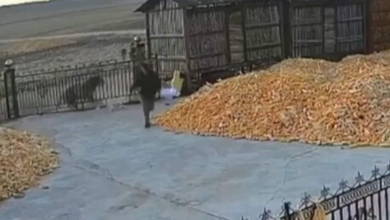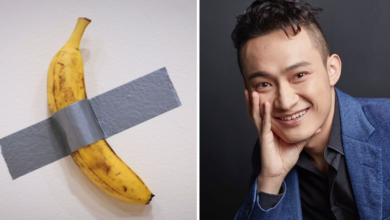EXCLUSIVE | Ten years of English Vinglish: Director Gauri Shinde on ‘blind date’ with Sridevi and falling in love with her

Not all heroes wear capes. Some, like Sridevi’s Shashi from English Vinglish, wear a saree. Released ten years ago, filmmaker Gauri Shinde’s debut comedy drama followed the remarkable evolution, from timid to terrific, of a housewife mocked for her English-speaking skills her daughter and husband. the end of the film, Shashi has the last laugh and learns a lot more than just a language.
English Vinglish marked the return of Sridevi on the big screen after a 15-year hiatus and opened to glowing reviews. The audiences’ love translated into a stunning box office journey, making it one of the most acclaimed comebacks of an actor and announcing the arrival of a fresh new voice in filmmaking, Gauri Shinde.
On the 10th anniversary of English Vinglish, the filmmaker revisits the making of the film with , recalling how the idea of a middle-aged saree-clad woman learning–and eventually breaking free–had producers give her bizarre suggestions, how she looks back at the film in a bittersweet way after Sridevi’s passing away in 2018 and why her first meeting with the beloved star felt like a date.
Edited excerpts:
Sridevi and Gauri Shinde’s maiden–and only– project English Vinglish earned widespread acclaim. (Photo: Sridevi/Twitter)
How do you look back at the film, ten years later?
It feels unbelievable that a decade has gone . It feels like I made the film just yesterday. It is still so fresh in my memory. It was a great ride. It is like a little treasure in my life, one gem.
When was the last time you watched the film?
The last time I saw the film was in 2018 when Sri passed away. We all got together–the English Vinglish gang–from Adil (Hussain), Sumeet (Vyas), Rajeev (Ravindranathan), Swanand Kirkire. We gathered at my place and watched the film.
It must have been an extremely emotional moment.
Yes, it was actually quite intense.
It is also ten years of you as a filmmaker. What all has changed?
In terms of being a director, I don’t think much has changed, except that I made another film (Dear Zindagi) and then did not make any other film. What I began with and have learnt from English Vinglish is that I will make films that will resonate with me, mean something in my life. Films through which I am able to express something that I desperately want to. Unless that’s the case, I don’t see the point of making a film.
The film was inspired your mother. What happened after the film was released?
She was the inspiration. The character was a replica of so many Indian women. Since I had dedicated it to her, she felt like she was the star of the film! She was walking around proudly, and I think till date she does. Everyone she knows, and even other people who would approach her and say, ‘Oh you’re the mother!’ She would feel proud. She feels like the film is a gift.
What was the biggest challenge with English Vinglish?
To get the film made! Because no one really wanted to support the venture, didn’t entirely believe in the idea. Back then, it was one of the first films that was female centric so to say. The protagon was not a young woman, she was a middle-aged woman, wearing a saree, a traditional housewife. Not the kind of things that would spark off investors or box office believers.
It was really hard. Many people wanted to make changes to the film because it was Sridevi coming back. They wanted her to dance, have a big Sridevi dance number. I refused to compromise on any of those things. There were a lot of conditions, in case they were interested. I wanted to make the film the way I visualised it or would rather keep it aside.
We decided to produce it ourselves. When I look back, everything fell in place magically. I am extremely grateful for that time. That entire journey was a landmark for me.
Was it heartbreaking as a debut filmmaker when these bizarre conditions were being laid?
It was disappointing that people didn’t have the vision. After the film was successful, the same people and many others approached me saying, ‘Oh my God, what a film. We would like to…’ There is no point in that because if something is successful, you want to follow a formula. But to have the vision to see that something like this could be a thing is what is important.
I understood to some extent the reluctance of producers. I was a first-time director. It was a comeback of someone who people hadn’t seen in 15 years. Yes, there was excitement but the comebacks of so many actresses weren’t really successful. There was no hory or any marker that it can succeed as well. On top of that, she was a traditional woman protagon. I understood it but someone could have had a vision.
I believe even the casting of Sridevi was quite accidental.
It was. Balki had met Boney Kapoor randomly where Boney was talking to Balki about a film he wants to do with him. But Balki said he was taking a break because he had just done Paa and said my wife is making a film. That’s when Sri asked him what it is about. When Balki gave her a one liner, she was very intrigued and asked if she could hear the script. The next thing I know I was there narrating it to her. There were some people interested in doing the lead role, but I wasn’t. I didn’t feel anybody really fit the part of Shashi until Sridevi just magically happened to me.
Sridevi in a still from English Vinglish. (Photo: File Photo)
Do you remember what did she say after the full narration?
Hats off her to her instinct, intuition and her innate intelligence because she just got it. She knew she could play it. It resonated with her. I think something about me also she liked. We both just fell in love with each other the first time we met. Through the narration, we could sense the warmth towards each other. I always call that a blind date that we were on, from where our love story started. She told me at the end of the narration, ‘I don’t know about you, but I want to do this film.’
She must have also liked that you didn’t indulge in the quintessential Sridevi image.
Yes, because I was not trying to impress her or make changes accordingly. She saw that. An intelligent arte sees if there is honesty to it. Somewhere along the lines, she also shared how these are the films where she can perform in a nuanced way, which has always been her love. She was so glad to have played that. She did a lot of these stuff in her younger days in South cinema, but rarely did she get an opportunity to do that in Hindi films.
Does the film feel bittersweet today, considering it is one of her last works?
It does. For me, her passing away hit me like… It was my first film, my first actress. It was the most beautiful relationship. The entire experience we had; it went beyond an actor-director bond. I realised that I am so grateful to have had this opportunity. Even for her, she would thank me. I know how much happiness the film gave her. There was some renewed energy in her through and post the film.
She had said how the film was a gift to her, but it was a gift for me too. I will always be grateful. It is bittersweet, very emotional but I am glad it happened. I met her, and we could make this film together.
There were reports that both of you were to reunite to make a sequel of the film.
Not a sequel, it was something else. To touch a film like this after having set a bar… to extend it would be to simply stretch it for no reason. I didn’t want to. But we all joked about it. Mehdi (Nebbou), who plays Laurent, definitely wanted a sequel! We would joke about it, but there was never a real plan.
Ten years later, where would Shashi be today?
She’d be having a rocking business, would have probably gone international! She’d be this amazing woman whose daughter and son would be inspired her. She would be known in her circle. I think the husband would be the slightly insecure one because she’d busy and would have come into her own so gracefully.







